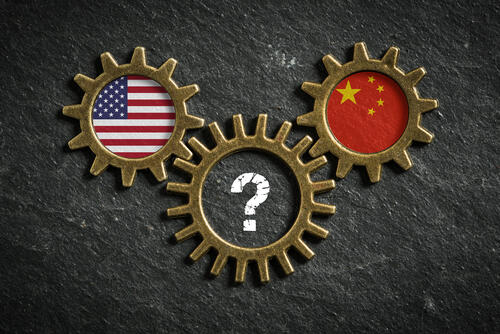U.S.-China Economic Tensions and Their Implications
U.S.-China Economic Tensions and Their Implications
Wednesday, April 17, 20194:30 PM - 6:00 PM (Pacific)
WE HAVE REACHED VENUE CAPACITY AND ARE NO LONGER ACCEPTING RSVPS
Rising US-China economic tensions are normal and were to be expected as China modernized. The current discussion of possible “disengagement” between the two was not foreordained, and results from relatively recent divergence in Chinese policy-making from the 40 year trend. The trend is not inevitable, but it will strengthen unless Beijing reverts to market liberalization: nations built on fundamentally different economic systems cannot be as linked as those with like-minded approaches. But China is far from locked-in to a non-market future, and any talk of US disengagement should be rigorously tested against three principles: provisional, partial and peaceful.

Daniel H. Rosen is a founding partner of Rhodium Group and leads the firm’s work on China, India and Asia. Dan has twenty-six years of professional experience analyzing China’s economy, commercial sector and external interactions. He is widely recognized for his contributions on the US-China economic relationship. He is affiliated with a number of American think tanks focused on international economics, and is an Adjunct Associate Professor at Columbia University. From 2000-2001, Dan was Senior Adviser for International Economic Policy at the White House National Economic Council and National Security Council. He is a member of the Council on Foreign Relations, and board member of the National Committee on US-China Relations. A native of New York City, Dan graduated with distinction from the graduate School of Foreign Service of Georgetown University (MSFS) and with honors in Asian Studies and Economics from the University of Texas, Austin (BA).
This event is part of the China Program’s Colloquia Series entitled "A New Cold War?: Sharp Power, Strategic Competition, and the Future of U.S.-China Relations " sponsored by Shorenstein APARC's China Program.
A New Cold War?: Sharp Power, Strategic Competition, and the Future of U.S.-China Relations

Trade conflict has exploded. The media is rife with stories of China’s unfair trade practices, cyber theft, IP theft and forced technology transfers. Who will first scale the commanding heights of technological supremacy? Who will be the first mover in AI, robotics and biotechnology? What are the implications of Beijing’s ambitious infrastructure projects, including its Belt and Road Initiative? How is China’s “sharp power” deployed, and what are its implications for political and civic life in the U.S.? Can the Trump administration and Beijing’s leadership reach agreement on our trade disputes? Are these just the beginning salvos of an increasingly turbulent future? As U.S. policy towards China sharply veers away from “constructive engagement” to “strategic competition,” the Stanford China Program will host a series of talks by leading experts to explore the current state of our bilateral relations, its potential future, and their implications for the world order.
p.p1 {margin: 0.0px 0.0px 0.0px 0.0px; font: 12.0px Calibri} span.s1 {font: 11.0px Calibri; font-kerning: none} span.s2 {font-kerning: none}
